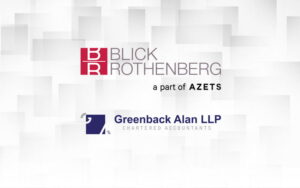Are changes to ISA 600 reshaping the landscape for group audits?
Tom Utley explores changes to group audits and what that could mean for you
20 March 2025 | Author: Tom Utley
The Financial Reporting Council (FRC) has revised ISA (UK) 600, effective for audits of financial statements for periods beginning on or after 15 December 2023, and the impact is already being felt.
With significant updates aimed at enhancing audit quality and addressing long-standing concerns about inconsistencies in group audits, the revised standard is reshaping the way group audits are conducted.
What has changed and how are groups adapting?
Based on our experience so far, we’ve broken down the key changes and what they mean for your business. This includes:
1) Stronger Group Auditor Responsibility
a) Group auditors must assume a more proactive role in planning and supervising the work of component auditors. This includes setting component performance materiality and ensuring the component auditor complies with the FRC Ethical Standard.
b) The new standard emphasises the need for group auditors to take full responsibility for the audit opinion. The group engagement partner is responsible for the quality of the component auditors’ work and determining the competence and capabilities of the component auditor.
2) Enhanced Risk Assessment
a) More of a proactive risk-based approach, including a greater focus on understanding the group’s structure, operations, and risks.
b) A requirement to identify significant risks at both the group and component levels.
c) The concept of a ’significant component‘ has been removed. Instead, there is more emphasis on identifying and assessing the risks of material misstatement for each component and performing targeted testing.
3) Improved Communication and Documentation
a) Stronger emphasis on clear communication between group and component auditors. The new standard treats all parties involved in delivering the audit work across all components as a single engagement team.
b) Enhanced documentation requirements to provide evidence of compliance with the new standard.
4) Scalability and Tailored Approach
a) Principles based approach, designed to be proportionate, enabling auditors to scale their approach depending on the size and complexity of the group.
How could this impact your audit?
Group finance teams may notice the following changes:
1) Increased Involvement by the Group Auditor
a) Expect the group auditor to request more detailed information about components, especially for risk assessment and audit scoping purposes.
b) The group auditor will be required to review consolidated financials at the planning stage of the audit to assess risks. In some businesses, this will mean producing consolidated figures much earlier than usual and could drive more scrutiny of how management prepares group financial statements, to ensure consistency across all components.
c) Auditors will likely focus more on areas of higher risk or materiality, which could mean deeper dives into specific subsidiaries.
2) Potentially Longer Timelines
a) Enhanced risk assessment and communication requirements may extend audit timelines, particularly for complex group structures.
3) Higher Costs
a) The increased workload for group auditors may result in higher audit fees.
What can you do to prepare?
To minimise disruption and ensure a smooth audit process, businesses can take the following steps:
1) Early Engagement
a) Begin discussions with your group auditor well ahead of the audit cycle. Share details about group structure, intercompany transactions, and any significant risks.
2) Streamline Internal Processes
a) Ensure all components maintain accurate and complete financial records.
b) Standardise internal reporting procedures across group entities.
c) Ensure consolidated financials will be ready for the group auditors to review at the planning stage.
3) Strengthen Communication Across Components
a) Foster better collaboration between component management teams and the group auditor.
4) Allocate Resources
a) Recognise that the new standard may require additional time and internal resources, so plan accordingly.
Would you like to know more?
If you would like to discuss the impact of the revised ISA (UK) 600 on your audit or have any other questions in respect of any of audit issues, please get in touch with your usual Blick Rothenberg contact or using the form below.
Contact Us

You may also be interested in

What is the impact with property VAT when developers’ plans change?

Contractors and subcontractors in the UK construction sector must understand the Construction Industry Scheme











